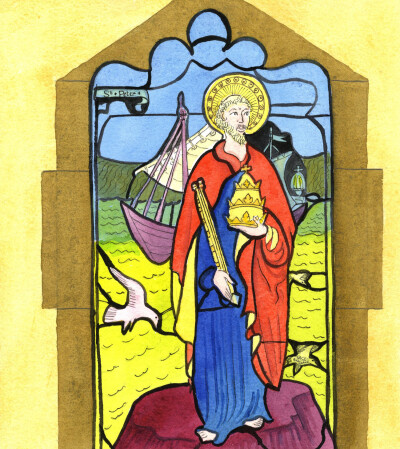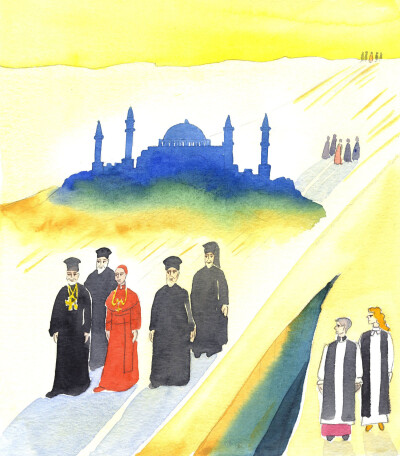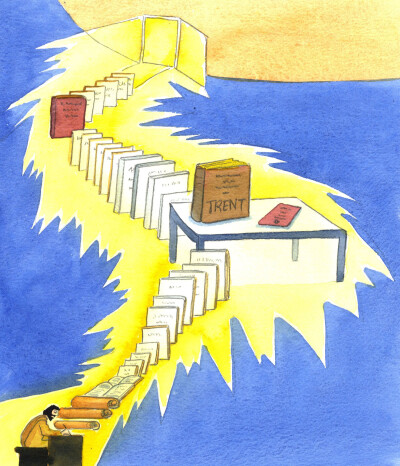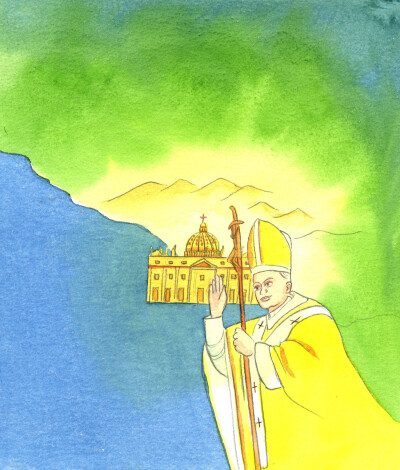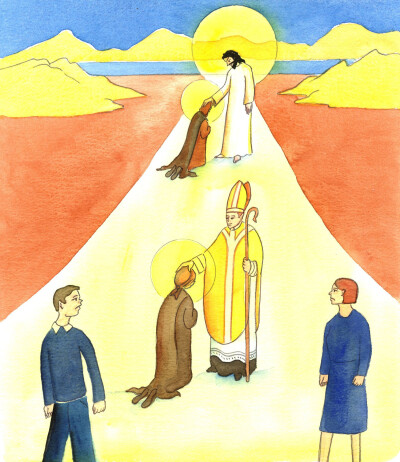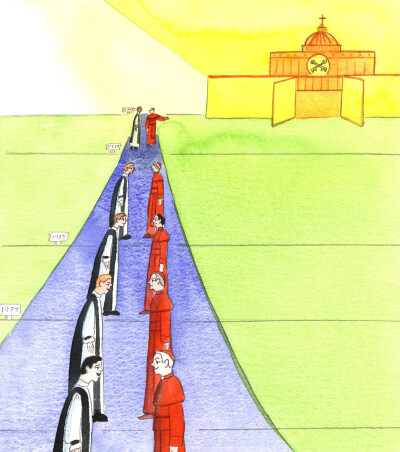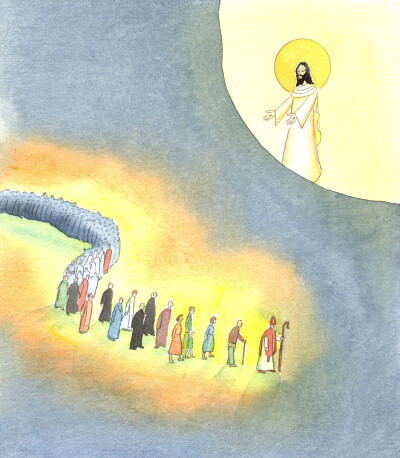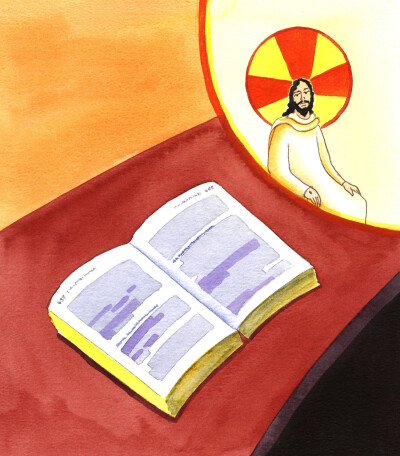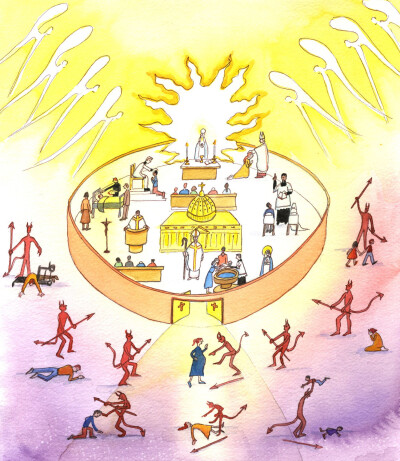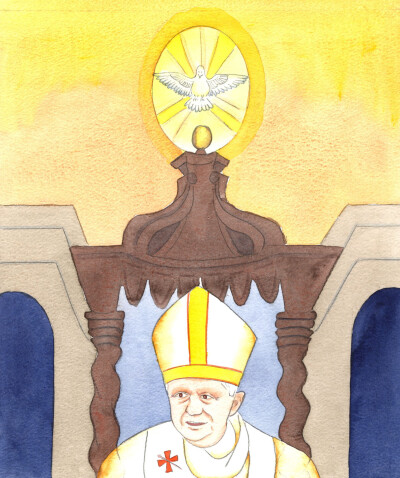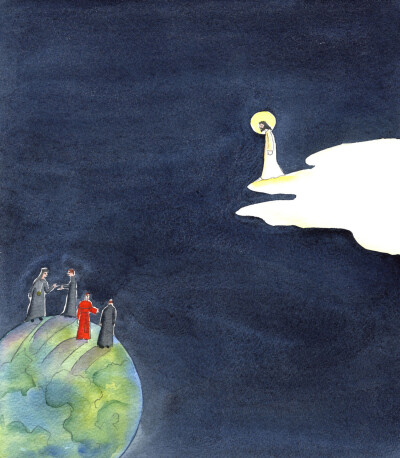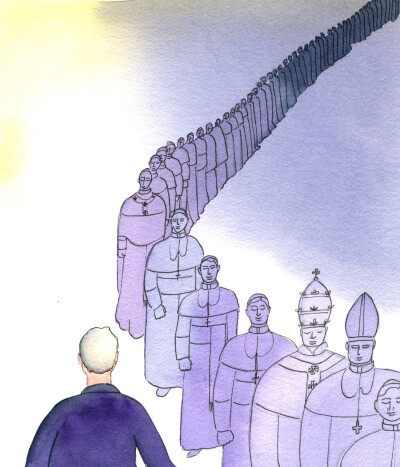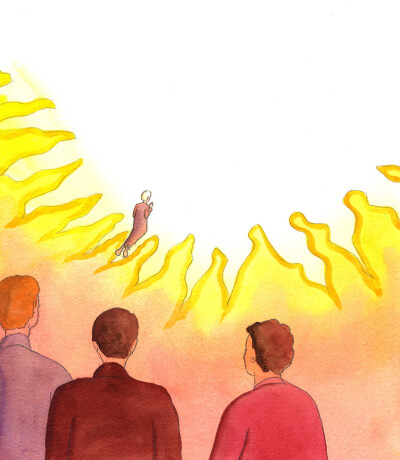Search Page
Showing 1 - 20 of 22
If we are ever overwhelmed by shame about our past lives, tempted to be despondent even though we are loved and forgiven, we can be sure that Christ wants us to remember His Apostles. Even Peter and others sinned - yet were chosen by God for His work.
St. Peter spoke about Christ with fervour, joy and utter conviction; and so he provided a wonderful example for us who are sometimes timid, and have to throw off our fears, with God's help, and make joyful proclamations about the truths of the Catholic Faith.
Christ brought to my mind the image of St. Peter, in my local church, saying: St. Peter did not let the memory of his own failures stop him from preaching repentance to other people. Christ asked me not to let the memory of my own sins hold me back from prayer and brave words by which I can help others to repent of their bad behaviour and find peace in and with Christ.
The Lord asked me to look at the time when Rome and Constantinople were united in loving and serving God in Three Persons, under the guidance of the successors of St. Peter and the Apostles - until an exchange of insults damaged this. That earlier happier state can be re-gained. But re-union is not possible with other Christians who do not accept the Pope's prominent role and who imagine that woman can be priests.
The eternal truths expressed in the writings of generations of Popes are for all people. The Lord has enlightened the Popes ever since St. Peter. Two great works that the Lord wants people to examine are the Catechism of the Council of Trent, and 'Of Human Life' by Pope Paul VI - and then, in recent days, the 'Catechism of the Catholic Church'.
In God's sight, without the Pope, civilization is lost. He is the 'Rock', the reminder for the world of the existence of God, and the importance of God's laws, as people in many council chambers in Governments or international organisations deliberately leave out all mention of God, and even enact wicked and immoral laws.
Those who are constantly within the Church but fighting in the Church, protesting against her doctrines and disciplines, will not make much spiritual progress. Discontented, acting against Christ Who has given us the Pope to guide us, and the other Catholic Bishops, the dissenters should do what Saint Peter did before Christ. He surrendered to Christ and to His Will, just as the Saints have, through the ages, in love and obedience. Surrender is the 'key' to joy in Christ.
A priest or Bishop who speaks only of generalities, year after year, when he meets with Protestant Ministers, is failing in his duty. To practice ecumenism does not mean never mentioning the glorious truth that Christ founded one united Church, upon Peter: a Church which exists today, with its door open, for everyone willing to come in and practice the Faith, guided by her sure teachings.
The Church's doctrine about the importance of the Papacy is so firm, that it's as if Christ has been calling out to His followers, all through the ages, "STAY WITH PETER!" No-one is a faithful Catholic who has cut himself adrift from the Pope.
We must trust in Christ's gift to us of the Pope, successor to St. Peter, if there should be a need of clarifications of passages of the documents of the Second Vatican Council. Even untrained lay-persons can see that some phrases and passages are ambiguous; and so we can count on the Pope to explain these in a way faithful to the teaching of the Church through the ages.
The Church is like a city with St. Peter's basilica at the centre. There are demons outside the city, attacking people, as they cry out for mercy. Yet there are angels guarding the city and its inhabitants. The Church is guaranteed God's help and protection, through the power of the sacraments, the wise guidance of the Angels, the frequent blessing by the Clergy, and the prayers of the Baptised.
There is no need for concern about the Pope's decision to assist Anglicans who want to become Catholic whilst retaining some of their 'heritage'. He knows that Anglicans do not have valid orders, and that special measures are necessary rather than leave many Christians without all the Sacraments. The Holy Spirit, pictured in St. Peter's Basilica in Rome as a dove, in a Scriptural image, is guiding the Church today, just as in past ages, through all the Popes of the ages - and despite the personal sins of individual Popes.
When Christians talk together, discussing the meaning of 'Church' and 'Communion', Christ is on the edge of Heaven, gazing upon the earth, interceding for those people, praying for those who are out of Full Communion, so that they will come home, into Full Communion with the successor of St. Peter, the Pope, and with the other Catholic Bishops.
If we look at the long line of Popes, from the present day, back to Pope Saint Pius X and then back through Popes of many earlier centuries, as far as St. Peter, we see that the true doctrine of the Church has been handed on by the Popes, even if individuals here and there have been very sinful. Christ wants wavering souls to know that, in doctrinal matters, we are 'safe with Peter'.
The Church hands on the message of Jesus Christ. People who ignore God, and hate the Church or her teachings are seen by Christ as living in a degree of spiritual darkness, even if they were not told good things about the Catholic Faith when they were young. And no-one can enter Heaven without having shown some degree of humility and penitence before God. That is why we, today, should proclaim the message of St. Peter: "Repent - that your sins may be blotted out". Unbelievers, and proud people, cannot enter.
What is Mary Like? by Elizabeth Wang
This text is the complete version of the pamphlet WHAT IS MARY LIKE?
“Now having met together; they asked him, ‘Lord, has the time come? Are you going to restore the kingdom to Israel?’ He replied,…
Autobiography of Elizabeth Wang, Part 1
This text forms part of Elizabeth Wang's Falling in Love: A Spiritual Autobiography (1999). It tells the story of her life and of her spiritual journey as she came to know Christ and His Church.
You …
Autobiography of Elizabeth Wang, Part 2
This text forms part of Elizabeth Wang's Falling in Love: A Spiritual Autobiography (1999). It tells the story of her life and of her spiritual journey as she came to know Christ and His Church.
You …
Autobiography of Elizabeth Wang, Part 3
This text forms part of Elizabeth Wang's Falling in Love: A Spiritual Autobiography (1999). It tells the story of her life and of her spiritual journey as she came to know Christ and His Church.
You …
A Picture of a Faithful Diocese
A short piece of writing by Elizabeth Wang about how the Catholic faith can be lived and celebrated within a Faithful Diocese, and the responsibilities of all the faithful - and especially bishops - t…
Showing 1 - 20 of 22



